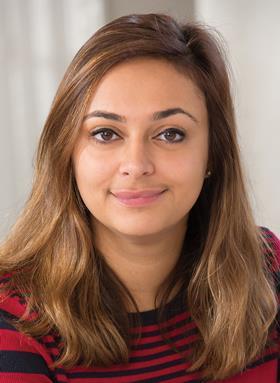Over the last two years, the legal profession and its culture has been in a state of flux. As the vice chair and then chair of the national Junior Lawyers Division (JLD) from November 2020 to October 2022, I have had the privilege of leading the JLD’s work campaigning on behalf of junior lawyers over this period. While the most recent changes may not be as stark or as noticeable as in 2020 when Covid-19 first arrived, the legal profession has forever changed and we are still finding our feet in the post-pandemic world.

Junior lawyers are reassessing their priorities. Many lawyers worked flat out during the pandemic – most sectors of the legal profession found themselves drowning in work - and this laid a large burden on those starting out in their career. Working at home in poor conditions, where work and home lives became inextricably linked, led to burnout for the vast majority. In response, many juniors switched jobs or set firmer boundaries to ensure that they do not lose themselves to the profession. When looking for new jobs, juniors have different priorities – while salary is of course an important consideration, especially with an ongoing cost of living crisis, they are looking at the culture of a firm. Is there sufficient mental health support? Does the work the firm engages in match their values? Will the firm respect their work-life balance?
The switch to remote working and, subsequently, to hybrid working, has led many to suffer from ‘online fatigue’. It is clear that juniors are spending so much time online through their jobs that they are rejecting any additional time in front of a screen. Despite the early popularity of Zoom quizzes, virtual events are now generally reserved for educational lectures, whereas social events are consistently held in person. Those who are unable to attend social events will be concerned that the access they gained during the pandemic will be lost, and the best way forward to ensure accessibility is to hold events using hybrid technology wherever possible.
One positive that came out from the pandemic was an increasing willingness for senior management to consult with juniors before implementing policies. For example, many firms ran surveys internally to assess how many days their staff wanted to come into the office. Looking forward, it is vital that management continue to communicate with their staff and to amend their policy accordingly. Our culture continues to change and evolve, as we adapt to a hybrid world, and the only way for senior management to properly reflect the culture of their firm is to continuously ask for feedback. Without this, there is a risk that a policy only reflects a moment in time, and becomes stale and inappropriate.
While flexible working comes with many positives, we must be conscious of what could be lost. In the past, junior lawyers have picked up ‘soft skills’ from their time in the office. For example, by sitting next to a senior lawyer taking part in a difficult call, they may learn how to handle challenging clients. It is possible to counteract these losses through considered supervision, and we are seeing more nuanced supervision arrangements evolve. For example, trainees may be appointed multiple supervisors instead of one, to ensure that there is always someone in the office to ask for help. Firms should ensure that their supervisors are properly trained to supervise remotely. The Law Society and JLD have produced guidance to help firms considering this issue.
The emphasis on clearer boundaries in respect of work and home comes with improved mental health, but may result in junior lawyers missing out on ‘extra-curricular opportunities’ which are beneficial for their career. Over the course of 2021, many pro bono legal centres and regional JLDs saw a drop off in engagement as junior lawyers spent less time interacting with the wider legal community. Volunteer organisations such as regional JLDs must now evolve to ensure that they remain engaging, attractive and beneficial for junior lawyers.
Working to maintain pace with the changing culture, the Junior Lawyers Division and the Law Society have also evolved in 2022. In order to assist the Law Society with providing a more joined-up service to members, while still ferociously campaigning for the interests of junior lawyers, the JLD is splitting into two bodies. The first is the Junior Solicitors Network (‘JSN’), an advisory body which is part of the Law Society. The JSN will advise the Law Society on matters involving junior lawyers, in order to support and shape their events and policies to ensure they are engaging and relevant. The second is the national Junior Lawyers Division (‘NJLD’), an independent body which will campaign on behalf of junior lawyers and publicly represent their interests.
It has been both a pleasure and an honour to lead the Junior Lawyers Division through this particularly turbulent period of change. I will now hand over to Darja Cernobrivec, who will chair both the JSN and the NJLD from November 2022 to October 2023, and wish her and the new committee the best of luck for the future.
Suzanna Eames is chair of the Junior Lawyers Division and associate at Farrer & Co
































No comments yet